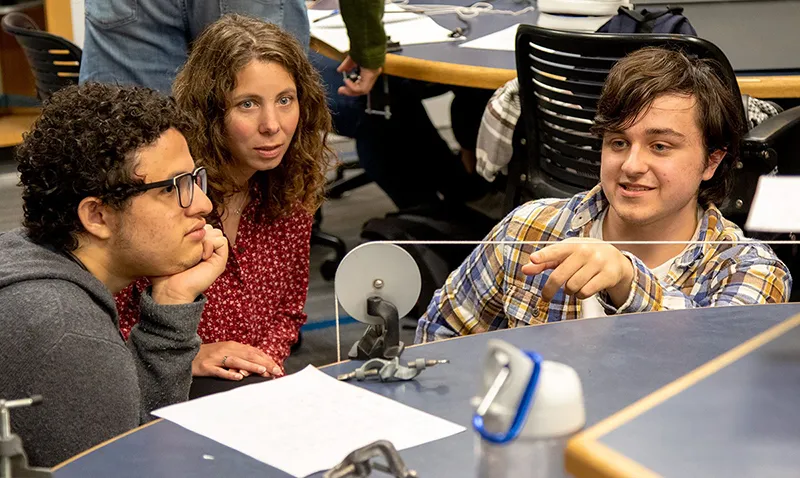Kelley Sullivan, associate professor of physics and astronomy, was the 2022 recipient of the President Shirley M. Collado Faculty Award for Outstanding Contributions to the Ithaca College Community. The award is given annually to a faculty member who takes initiatives to make education more inclusive.
That’s been one of the hallmarks of Sullivan’s time at IC. One noteworthy initiative stemmed from the urge to take action after George Floyd’s death in 2020.
“We wanted to do more than just say something. We wanted to do something,” she said. “So we worked with our students and came up with an antiracism plan as part of an effort to put words into actions.”
The plan listed forty actions that sought out to combat bias and ostracization of people of color in physics and astronomy.
Sullivan then put together another team with the initiative to double the number of black undergraduate physics majors by 2030. As part of this initiative, The American Institute of Physics worked with groups and provided access to webinars, conferences, and assignments.
Additionally, this past January, she was named to the American Physical Society’s Equity, Diversity, and Inclusion (EDI) Fellows program. One of six inaugural fellows selected from a nationwide pool of applicants, Sullivan will work with critical conversation specialists to learn how to lead conversations about equity, diversity, and inclusion.
